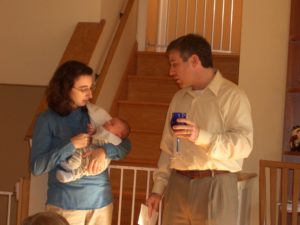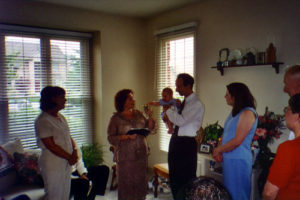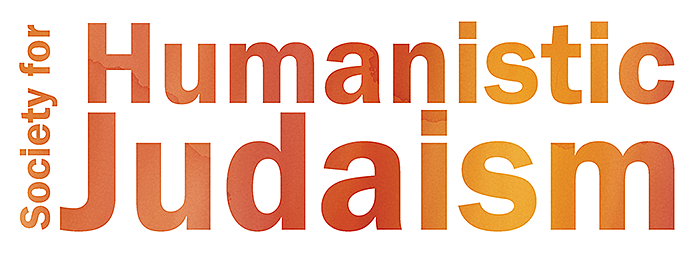Birth
In celebrating the birth of a child, Humanistic Jews believe that:
- Male and female children ought to be treated equally;
- Children of all multicultural or multi-faith couples should have equal status, regardless of whether the mother or father is Jewish;
- Medical and moral decisions about circumcision should be considered separately from decisions about birth and baby-naming celebrations; and
- The birth celebration should affirm the family’s connection to the Jewish people and to the human community in a philosophically consistent, meaningful way.
Circumcision and Brit Milah (Bris)
A traditional brit milah (covenant of circumcision) is a covenant with God, so it is inconsistent with the philosophy of Humanistic Judaism. When a male child is born, the families are encouraged to decide whether to circumcise their child separate from the type of ceremony they will choose to celebrate the child’s birth. Humanistic rabbis and leaders are trained to guide parents and grandparents through this decision-making process so they can determine what is best for their child and family.
Our movement leadership has considered the issue of circumcision in its resolution Circumcision and Jewish Identity.
Humanistic Birth Celebrations (Brit Shalom)
 A Humanistic birth celebration has two functions: to name and to welcome. Some leaders refer to this gender neutral birth celebration as a brit shalom (covenant of peace). Naming a child in English, Hebrew, and/or Yiddish can provide an important link to the child’s ancestral heritage and to the community. In the welcoming portion of the ceremony, grandparents, parents, siblings, other relatives, and the Humanistic Jewish community publicly acknowledge the event, symbolizing their commitment to the child’s welfare. Participation in the ceremony gives family members deserved recognition and honor.
A Humanistic birth celebration has two functions: to name and to welcome. Some leaders refer to this gender neutral birth celebration as a brit shalom (covenant of peace). Naming a child in English, Hebrew, and/or Yiddish can provide an important link to the child’s ancestral heritage and to the community. In the welcoming portion of the ceremony, grandparents, parents, siblings, other relatives, and the Humanistic Jewish community publicly acknowledge the event, symbolizing their commitment to the child’s welfare. Participation in the ceremony gives family members deserved recognition and honor.
Generally, a birth celebration is held about a month after the baby is born, in order to give the infant and parents time to adjust to their new life together. The celebration may be held in the home, congregational meeting space, or other public place. It is not necessary that a rabbi or madrikh(a) (ceremonial leader) officiate; however, officiation by a certified leader or sponsorship by the Humanistic Jewish community serves a valuable purpose by providing communal recognition of the event and professional creation of the ceremony.
Please contact SHJ Rabbi Miriam Jerris for assistance with your life cycle needs, or to help you find an officiant. There are also many resources in the SHJ Store Life Cycle section with information about creating Humanistic Jewish ceremonies to mark life cycle events.
